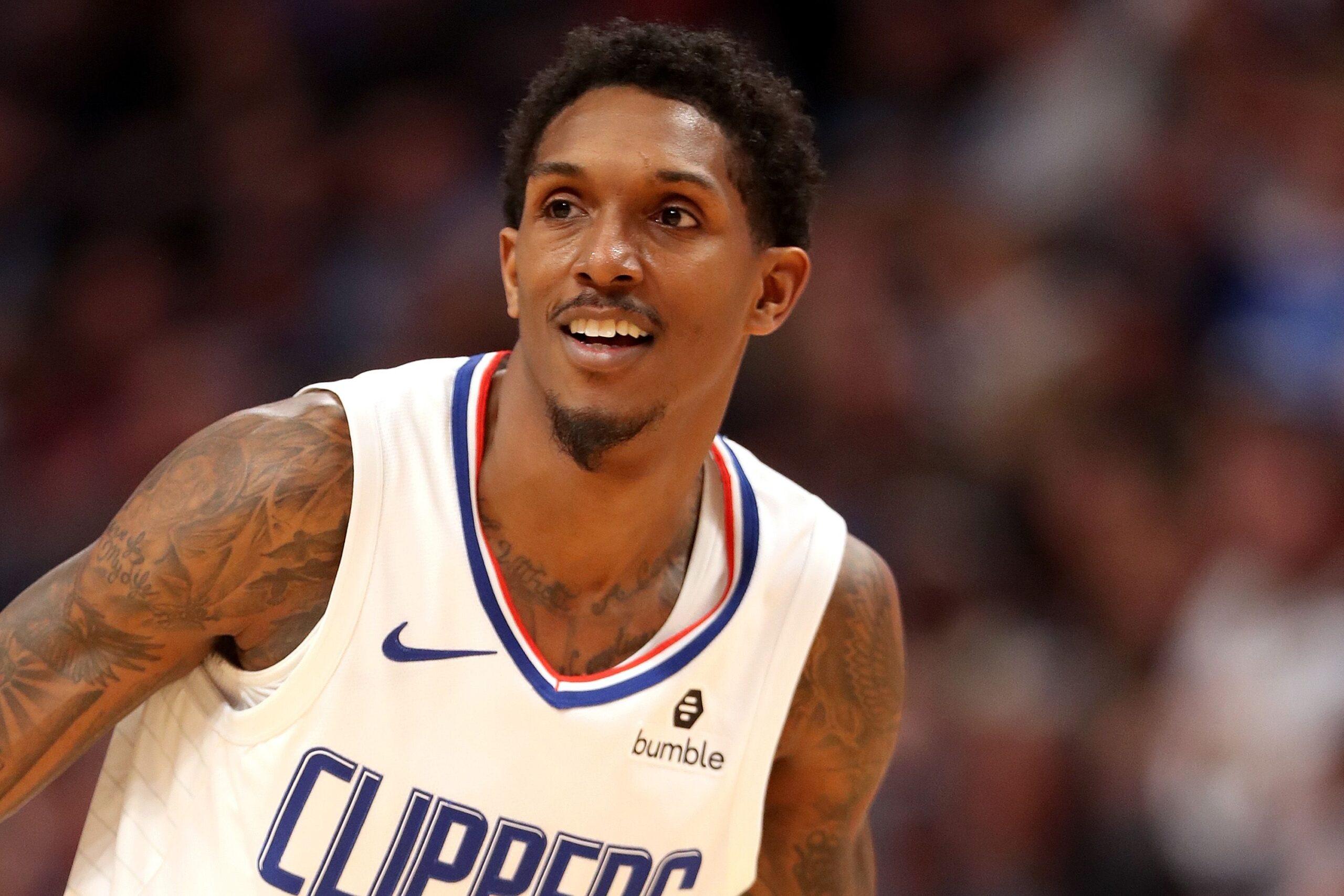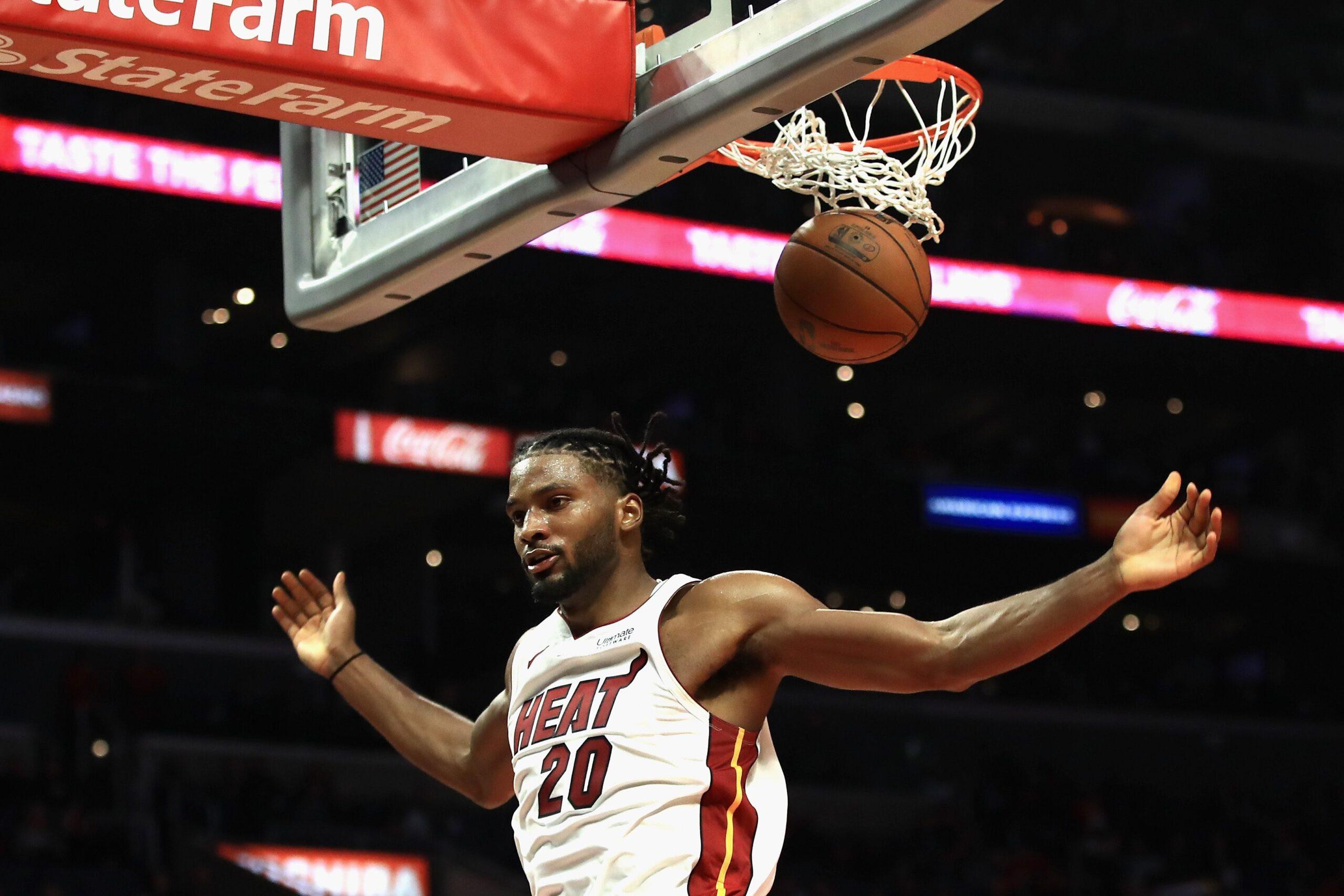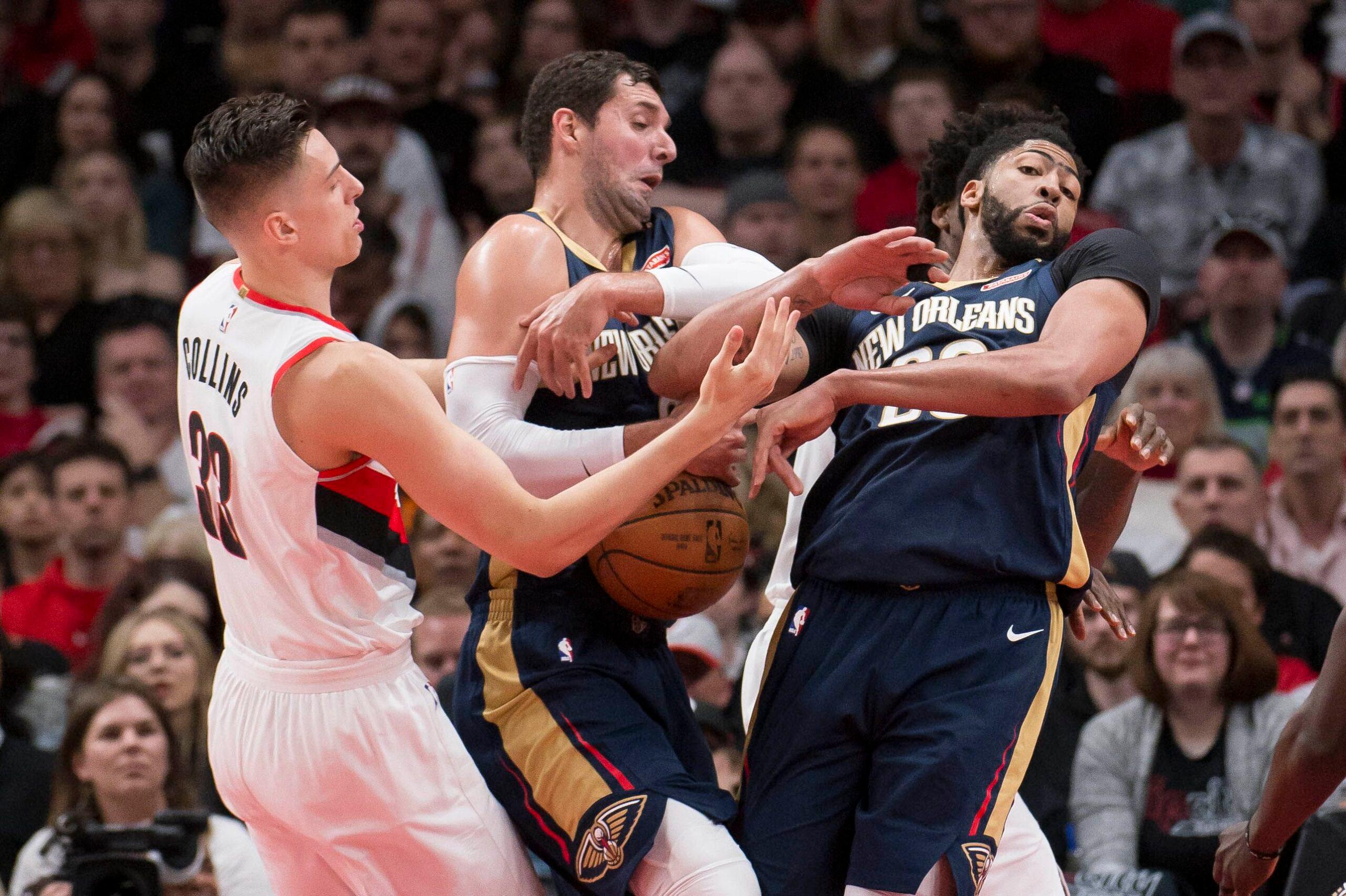The Miami Heat’s Saturday win over the Memphis Grizzlies improved them to 21-20. That meant that every NBA team had played at least 41 games, and we’d officially reached the midpoint of the 2018-19 season. So, as we did back when we hit the first-quarter mark at the end of November, let’s celebrate our arrival at a manageable fraction by handing out some awards!
One thing I want to make clear before we get started: These awards are based purely on performance over the second quarter of the season, the 20ish-game period between the end of November and the second week of January. Focusing on who rose, fell, delighted, and disappointed during that time, rather than on who has played best through the entire season, better crystallizes the state of play as we enter the second half; it also helps avoid repeats, which can be boring. (Although, as we’ll see, not entirely.)
Team of the Quarter: Milwaukee Bucks
No one team ran away and hid from its competitors in the run-up to the halfway point, but I’m going with Milwaukee for building on its strong start to the season with a 14-6 run. During that stretch, the Bucks turned in the East’s second-best net rating (and fourth best overall). They never dropped back-to-back games, and burnished their contending credentials with road wins in Toronto, Boston (albeit against a Celtics team without defensive linchpin Al Horford), and Houston at the height of James Harden’s ridiculousness.
While you can ding Milwaukee for the struggles of key players like Khris Middleton (who shot just 41.9 percent from the floor and 33.6 percent from 3-point land in that span) and Eric Bledsoe (just 26.1 percent from deep), it bodes well for the Bucks that they’ve kept rolling thanks to the excellence of Giannis Antetokounmpo, strong play from Malcolm Brogdon, and contributions from other sources. Swingman Sterling Brown has been a steadying presence on the wing, guarding multiple positions and knocking down 39.3 percent of his triples since the start of December. His fellow 2017 draftee, second-year big D.J. Wilson, entered the rotation in mid-December and promptly started making a two-way impact, inside and out. With a deep bench and coach Mike Budenholzer pulling all the right strings, Milwaukee has established itself as a fearsome squad set to remain in the Eastern title picture for the long haul.
Also receiving theoretical votes in my brain: San Antonio Spurs, Houston Rockets, Indiana Pacers
Player of the Quarter: James Harden, Rockets
I’m not too sure your mileage can vary here. Through 20 games, the Rockets were under .500 and in dire straits. Through 41, they were a game out of a top-four seed, thanks almost entirely to the overwhelming and undeniable propulsion of Harden’s offensive game.
Necessity is the mother of invention. In Houston’s case, Chris Paul’s hamstring injury, Eric Gordon’s frigid shooting, and the absence of another dependable creator led Harden to take his 3-point shooting to a previously unheard-of level in pursuit of enough offense to right his reeling team. It worked: After a 9-11 start, the Rockets went 14-6 over their next 20 games, with Harden averaging 12 free throw attempts and 13.8 3-pointers a night on his way to 37.3 points, 8.6 assists, and 6.5 rebounds in 37.3 minutes per game. He decimated a slew of the NBA’s best defenses, put up four 40-plus-point triple-doubles (including a 50-pointer against the Lakers), and officially announced his plans to take a second straight MVP trophy with a dramatic nationally televised performance against the Warriors that saw him carry Houston to overtime and hit the game-winner at Oracle Arena.
With Paul and Gordon still sidelined, and Clint Capela now joining them on the shelf, Harden and the Rockets have no choice but to keep the one-man-army act going. Against Memphis on Monday, Harden tallied 57 of Houston’s 112 points on 33 field goal attempts and 18 free throws; Harden finished a gargantuan 60.6 percent of the Rockets’ offensive plays with a shot, turnover, or foul drawn in his 34 minutes of floor time. Harden can’t possibly shoulder that sort of workload for long without risking yet another postseason crumble, but for now, his performance has returned Houston to Western relevance and reminded any who might have forgotten just what a force of nature he is.
ARTVIMB: Antetokounmpo, Paul George, Anthony Davis, Kawhi Leonard, Nikola Jokic, Kyrie Irving, Joel Embiid
Rookie of the Quarter: Luka Doncic, Mavericks
Sometimes the simplest answer is the best one. Doncic continued the stellar start to his NBA career by averaging a shade under 21 points, seven rebounds, and six assists per game in the second quarter of the season, helping keep a not-particularly-good Mavericks team within hailing distance of the Western postseason chase. (They entered play Tuesday at 20-23, three games behind Utah for the no. 8 spot.)
Dallas dropped in the standings by losing 11 of 14, but that slide included close losses on the road to the Nuggets, Clippers, Warriors, Blazers, Pelicans, and 76ers in which Doncic established his bona fides as one of the league’s premier late-game creators. Only All-Stars Kemba Walker, Harden, Victor Oladipo, and Kyrie Irving have scored more in the final three minutes of games with the margin within five points, according to NBA.com/Stats’s “clutch” stats; the Slovenian is shooting 17-for-29 from the floor and 6-for-13 from long distance in those high-leverage situations.
Doncic’s emergence as Rick Carlisle’s preferred playmaker appears to be a tough break for Dennis Smith Jr. But while you can wonder aloud whether punting on a partnership with 2017’s first-round pick this early (and likely for pennies on the dollar) is the wisest move for a Mavericks team light on long-term assets, the thought process behind the machinations makes sense. Dallas will rise or fall, now and in the future, with the ball in Doncic’s hands.
ARTVIMB: Jaren Jackson Jr., Rodions Kurucs, Deandre Ayton, Kevin Huerter, De’Anthony Melton
Reserve of the Quarter: Lou Williams, Clippers

I’m a fan of celebrating reserves who contribute by doing more than just jacking up a bunch of shots. Chalky as it seems, though, it’s awfully tough to view LouWill’s work with a jaundiced eye.
Over the Clippers’ second 20 games of the season, the two-time Sixth Man of the Year averaged 19.8 points and 5.9 assists in just 24.6 minutes per game, efficiently torching defenses on 48/44/87 shooting splits while posting a 2.5-to-1 assist-to-turnover ratio. In that span, L.A. scored 19.5 more points per 100 possessions with Williams on the floor, with him serving as the ballhandling catalyst for all of the team’s most effective lineups. A three-game skid has the Clips treading water a bit, but after a swoon erased the good vibes of their surprising start, they’re back in the middle of the Western Conference playoff pack, thanks in large part to Williams’s dependable deliveries off the bench.
ARTVIMB: Every Spur who doesn’t start (they’ve been sensational on offense and defense), Domantas Sabonis, Spencer Dinwiddie, Monte Morris, Bogdan Bogdanovic, Ed Davis
Defensive Player of the Quarter: Paul George, Thunder
As remarkable as he’s been on offense this season, it’s been George’s work on the other end that has helped the Thunder weather a spate of early injuries and stay in position as one of the West’s top teams.
George’s length, quickness, preternatural gift for avoiding screens, persistent activity on the ball, and awareness off of it made him one of the game’s most complete perimeter defenders, and a leading light in an elite defensive unit. Teammate Russell Westbrook actually logged more steals and deflections than George during the season’s second quarter, but PG ranked fourth and second in those categories, respectively. He is also coming up with more loose balls than anyone else in the league while often accepting nightly duty on the other team’s best scoring threat; during that 20-game run, he helped limit Doncic, Harden, Tobias Harris, Donovan Mitchell, and Zach LaVine, among others. (Plus, according to George, he’s the one to thank for Westbrook’s improved defensive work this season, anyway.)
It’s hard for perimeter players to stand out defensively in a league where big men who block shots and lock down the front of the rim tend to get the lion’s share of attention. (Here’s where we praise Steven Adams, Jerami Grant, and the hopefully-back-to-100-percent-very-soon Nerlens Noel; George certainly hasn’t done it alone.) But if the Thunder remain at or near the top of the defensive efficiency charts, and if he maintains this level of play—especially with All-Defensive wing stopper Andre Roberson still out of the lineup—George could find himself in the running to join Metta World Peace and Kawhi Leonard as the only non-bigs to win Defensive Player of the Year this century.
ARTVIMB: Rudy Gobert, Myles Turner
Most Improved Player of the Quarter: Justise Winslow, Heat
The no. 10 pick in the 2015 NBA draft began his fourth NBA season coming off the bench for Erik Spoelstra’s club, seemingly passed in Miami’s rotation by rising two-way talent Josh Richardson, the versatile Rodney McGruder, and perimeter players either highly paid (Tyler Johnson) or revered in franchise culture (Dwyane Wade). But in early December, with the Heat below .500 and struggling to find consistent playmaking, Spoelstra handed the 22-year-old Winslow the keys to the Miami offense. All of a sudden, a player once viewed as a Kawhi Leonard starter kit or a downmarket Draymond Green—and who started for Miami at center in Game 7 of the Eastern Conference semifinals in 2016—was the Heat’s starting point guard.

So far, so good. Winslow has averaged 14.7 points, 5.4 rebounds, 4.8 assists, and 1.3 steals in 30.1 minutes per game since the start of December, shooting 47.4 percent from the field and—crucially—41.3 percent from beyond the 3-point arc on more than four attempts per game. After notching only two 20-point games in his entire career before December 1, Winslow has had seven since, as well as his first two double-digit-assist outings as a pro.
As our Kevin O’Connor noted, the shift in role has boosted Winslow’s efficiency by allowing him to attack mismatches against either smaller point guards or slower big men who switch onto him in the pick-and-roll. That has helped collapse defenses, leading to more drive-and-kick opportunities that Miami can cash in on without having to sacrifice defensive size. The Heat can play bigger more frequently with Winslow at point and another wing on the floor. That’s helped Miami rank sixth in points allowed per possession during the second quarter of the season, even as the offense took off. It all started with Winslow: Since December 1, the Heat have outscored opponents by 11.4 points-per-100 with him on the court, and have been outscored by 5.1 points-per-100 when he’s sitting.
Winslow’s natural talent, his continued work on the shooting and facilitating aspects of his game, and an opportunity to take on a larger offensive role have combined to make him one of the more intriguing players in the league. He has turned his career around over the last 20 games, becoming indispensable for a Heat team rising up the Eastern standings.
ARTVIMB: Derrick White, Danuel House Jr., Terrance Ferguson, D’Angelo Russell
The Yooooo! Award for Most Pleasant Surprise of the Quarter: Brooklyn Nets
It seemed like the Nets had run out of air after the sucker punch of watching Caris LeVert, their best player in the early going, suffer a dreadful dislocated right foot in Minnesota on November 12. Starting with that game against the Wolves, Brooklyn lost 11 of its next 13, falling to 8-18 and looking like a team bound for a fourth straight season out of the playoffs. Since early December, though, the Nets have been one of the NBA’s hottest teams, going 14-5 over their last 19 games to move into the no. 7 spot in the East, just a game back of sixth-place Miami.
D’Angelo Russell has stepped up his scoring and playmaking in tandem with the recently extended Spencer Dinwiddie, creating what could be a fascinating situation this summer as Russell hits restricted free agency and Brooklyn has to decide which ball handlers to bank on. Latvian rookie Rodions Kurucs has looked like a steal from the second round of the 2018 draft, providing a combination of size, defensive versatility, off-ball motion, decisiveness, and shooting touch on the wing that has fueled the Nets’ rise back into playoff contention. Brooklyn plays hard, shares the ball, and bombs away from deep, which can make them a compelling watch whether they’re building up a great big lead (as they did on Monday against Boston) or losing one (as they very nearly did in that same game). Whether they’ve got the horses to stay in the playoff picture remains to be seen, but it’s been pretty fun to see them regain their bearings and get a new lease on life.
ARTVIMB: Heat, Rockets, Spurs
The Yiiiiikes! Award for Biggest Disappointment of the Quarter: New Orleans Pelicans

If we’re being honest, it might not be fair to call the Pelicans a disappointment; they actually performed a bit better statistically in the season’s second quarter than they did in the first. But they went 9-11 all the same, staying a couple of games out of the West’s top eight as the clock just keeps tick-tick-ticking toward the moment when Anthony Davis will have to choose where he wants to spend the rest of his prime.
The Pelicans outscored opponents by 3.3 points-per-100 compared with 1.2 points-per-100 through their 20 games, despite starters Nikola Mirotic and Elfrid Payton missing significant time due to injuries. Davis remained one of the league’s most remarkable players during that stretch, doing his level best to get New Orleans into playoff position with one monster performance after another; he averaged 30.7 points, 13.6 rebounds, 4.1 assists, 2.7 blocks, and 2.0 steals in 36.7 minutes per game in 19 appearances. They got solid minutes in stretches from Jahlil Okafor, Darius Miller, and Tim Frazier, and when they had their full complement of dudes, they looked strong: Lineups featuring Davis, Mirotic, and Jrue Holiday outscored opponents by 16.5 points-per-100 in the all-too-brief six games for which Mirotic suited up in that span.
Alvin Gentry’s squad could use another piece or two on the wing, but there is at least the outline of a real team here. The hope is that we’ll actually get to see it now; the Pelicans are 5-2 since Payton came back from a fractured finger on his left hand. If New Orleans can finally stay healthy and GM Dell Demps can find some more perimeter help—might as well burn this year’s first-round pick if you get the chance, because if AD decides to go, everybody else might be on the way out, too—the Pelicans might be able to replicate last season’s second-half magic. If they can’t, though, and New Orleans lands outside the top eight right before the Davis extension offer comes … well, that’s about as big a yiiiiikes as the league has to offer.
ARTVIMB: Celtics (they can’t seem to get in a consistent rhythm), 76ers (things seem real fun in Philly!), Pistons, Grizzlies
All statistics are current through Monday.